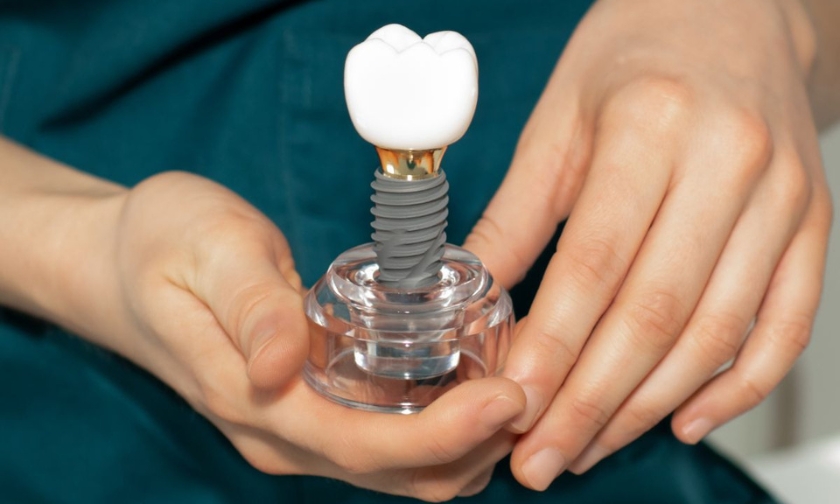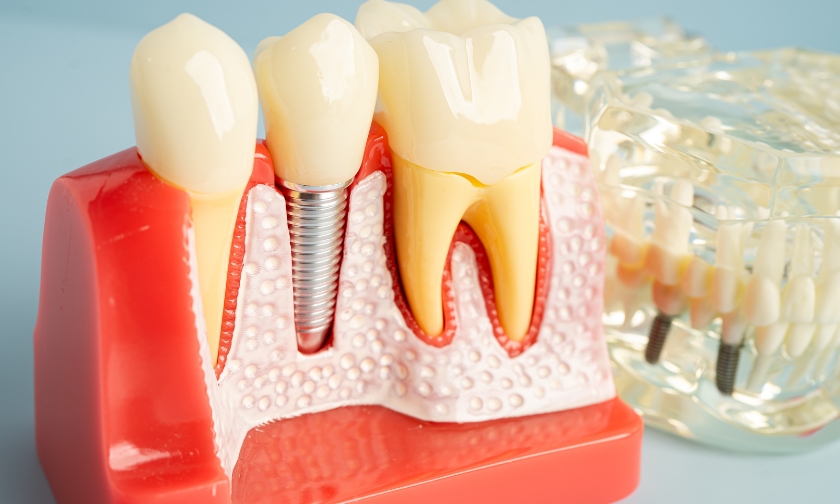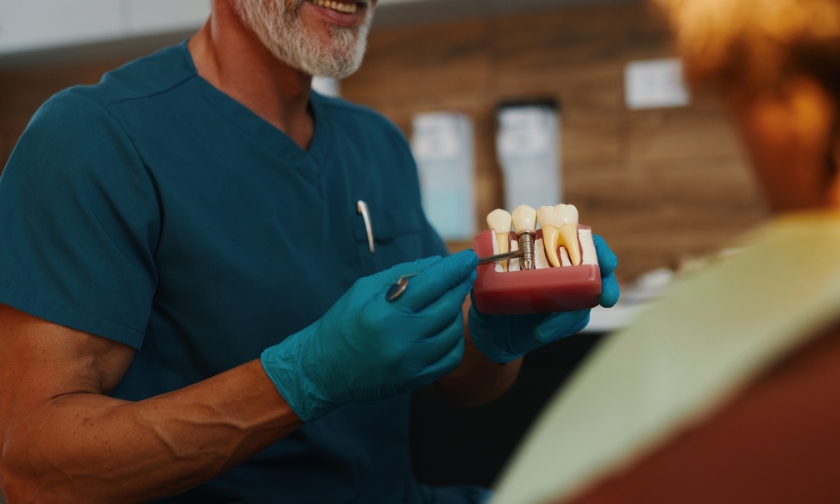
Are you considering dental implants to restore your smile and oral function? Understanding whether you’re a suitable candidate is crucial before embarking on this transformative dental journey. Dental implants in Newton, KS, offer a permanent solution for replacing missing teeth, providing both aesthetic benefits and functional advantages.
This blog explores the essential factors that determine candidacy for dental implants, ensuring you have the information needed to make informed decisions about your oral health.
Dental implants are titanium posts surgically placed into the jawbone to serve as artificial tooth roots. They support crowns, bridges, or dentures, mimicking the natural structure of teeth. Unlike traditional dentures or bridges, implants integrate with the jawbone, offering stability and durability. Factors such as overall health, oral hygiene, and bone density play pivotal roles in determining candidacy.
By examining these factors in detail, you can determine whether dental implants are the right choice for enhancing your smile and restoring chewing function effectively.
Types Of Dental Implants Available
Dental implants come in various types, each designed to cater to specific dental needs and conditions. Understanding these types can help you and your dentist choose the best option for your oral health and aesthetic goals.
- Endosteal implants: These are the most common types of dental implants, surgically placed directly into the jawbone. They are typically made of titanium and provide a strong foundation for artificial teeth.
- Subperiosteal implants: These implants are placed on top of the jawbone but under the gum tissue. They are used when the jawbone has receded and cannot support endosteal implants.
- Zygomatic implants: These implants are longer than other types and are used in cases where the jawbone is insufficient for traditional implants. They are anchored into the cheekbone (zygoma) instead of the jawbone.
- All-on-4 implants: This type involves placing only four implants in the jawbone to support a full arch of teeth. It is a cost-effective and efficient solution for patients needing full-mouth restoration.
Factors Influencing Candidacy for Dental Implants
To determine if you are a suitable candidate for dental implants, several factors need careful consideration. These factors encompass both general health and specific oral conditions, which collectively influence the success and suitability of dental implant treatment.
General Health Considerations:
- Overall Health: Good general health is crucial for successful dental implant surgery and healing. Conditions such as uncontrolled diabetes, immune disorders, and certain chronic illnesses may affect healing and increase the risk of complications.
- Medications: Certain medications, such as bisphosphonates used to treat osteoporosis, can impact bone healing and integration of dental implants.
- Smoking: Smoking can impair healing and increase the risk of implant failure. Dr. Davidson recommends quitting smoking before undergoing implant surgery.
Oral Health Factors:
- Gum Health: Healthy gums are essential for supporting dental implants. Gum disease (periodontitis) can lead to bone loss and compromise implant stability.
- Teeth and Bite Alignment: The position and health of adjacent teeth play a role in determining the placement and success of dental implants in Newton, KS.
- Oral Hygiene: Good oral hygiene practices are necessary to maintain implant health and prevent peri-implantitis, a condition similar to gum disease around natural teeth.
Bone Density and Jawbone Condition:
- Bone Density: Sufficient bone density in the jaw is necessary to support dental implants. Procedures such as bone grafting may be required if there is inadequate bone volume.
- Jawbone Condition: The quality and quantity of the jawbone can affect the stability and longevity of dental implants. Conditions like osteoporosis or previous trauma to the jaw may impact candidacy.
Common Conditions That May Affect Candidacy
Gum Disease (Periodontitis):
- Impact on Implant Success: Periodontitis is a serious gum infection that damages the soft tissue and destroys the bone that supports your teeth. If left untreated, it can lead to tooth loss and potentially affect the success of dental implants.
- Treatment Requirements: Prior to implant placement, treating periodontitis is essential. This may involve deep cleaning (scaling and root planing), antibiotic therapy, and possibly surgical intervention to restore gum and bone health.
- Maintenance: After receiving dental implants, maintaining excellent oral hygiene and regular dental check-ups are crucial to prevent the recurrence of gum disease and ensure the longevity of implants.
Chronic Health Conditions (Diabetes, Heart Disease):
- Impact on Healing: Chronic health conditions like diabetes and heart disease can affect the body’s ability to heal properly after surgery. Poor healing may lead to complications such as implant failure.
- Management Before Surgery: Patients with chronic conditions should have their conditions well-managed and controlled before undergoing dental implant surgery. This may involve collaboration between your dentist and other healthcare providers.
- Consultation with Healthcare Providers: may request medical clearance from your physician to ensure that your condition is stable and optimized for surgery.
- Post-Operative Care: Close monitoring and adherence to post-operative instructions are critical to minimize the risk of complications and promote successful healing.
Consultation Process with an Implant Dentist Dr. Davidson
Initial Assessment and Evaluation:
- Comprehensive Oral Examination: The process begins with a thorough examination of your teeth, gums, and overall oral health. Dr. Davidson will assess the condition of your remaining teeth and gums to determine if dental implants are suitable for you.
- Medical History Review: Dr. Davidson will review your medical history, including any existing health conditions or medications that may impact the success of dental implants.
- Discussion of Treatment Goals: During the initial consultation, you will discuss your dental goals and expectations with Dr. Davidson. This helps in creating a personalized treatment plan tailored to your specific needs.
Diagnostic Tests and Imaging Techniques:
- X-rays and CT Scans: Diagnostic imaging such as X-rays and CT scans are crucial for assessing the quantity and quality of jawbone available for implant placement. These images provide detailed information about bone density and structure.
- Impressions for Models: In some cases, impressions of your teeth and jaws may be taken to create models that help in planning the implant procedure accurately.
- Treatment Plan Development: Based on the findings from the assessment and diagnostic tests, Dr. Davidson will develop a comprehensive treatment plan outlining the stages of implant surgery, expected timelines, and potential outcomes.
Choosing dental implants in Newton, KS, is a significant decision that requires careful consideration of various factors, from oral health conditions to overall well-being. With advancements in technology and personalized treatment plans, more individuals can benefit from this transformative solution. Consultation with a dental implant specialist ensures tailored care and thorough evaluation, paving the way for a confident smile and improved oral function. Call Newton Dental Studio today to schedule your implant consultation today!


